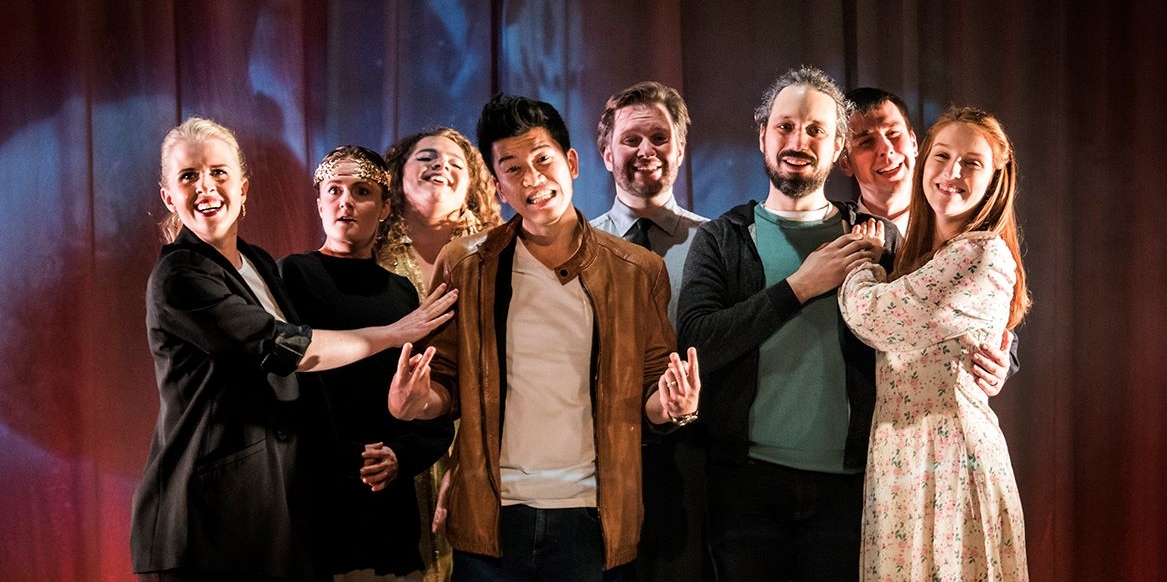Handel wrote a lot of operas and some are better than others. Agrippina was written for the Venice Carnival of 1710 and the textbooks tell us that it confirmed his standing as a celebrated opera composer in Italy. Despite this accolade, it really does not match up to the great operas that Handel wrote for London after 1711 – Giulio Cesare and Rinaldo, for example. So all credit to Hampstead Garden Opera, Director Ashley Pearson and the young singers and players for breathing life into this less than convincing piece – an opera not very seria.
Agrippina is unhappily married to the Emperor Claudio. She is impatient for his death so that her son Nerone can become emperor. She uses lies and threats to try to recruit or fool others into furthering her scheme – courtiers Narciso and Pallante, court beauty Poppea, and brave soldier Ottone. Agrippina’s devious scheming almost succeeds but, at the last, Poppea works out what she is up to and tells Claudio. Despite having her plotting revealed, Agrippina manages to talk her way out of this crisis and the opera ends with Claudio declaring Nerone his heir.
To tell this nonsensical story takes well over three hours of music and some of the da capo arias that are the mainstay of Handel’s opera seria style really do feel like “cut and paste” jobs – indeed, as was the custom of the time, some were indeed “borrowed” from earlier works, perhaps as a result, the opera fatally lacks a narrative flow. So moving the action from ancient Rome to modern Silicon Valley is a clever idea of director Ashley Pearson and, with the help of set designer Sorcha Corcoran, she comes up with a concept that allows for a ‘Succession’ style drama where Nerone and Ottone are rivals for the job of CEO of the big tech company. The set is dominated by a square white platform onto which is projected the screen of a smartphone and the back curtain sometimes displays the flow of text messages between characters.
All this would be so much window dressing were it not for the musical excellence of the singing and playing. There are two alternate casts but on the night I saw the opera singing the scheming Agrippina was the splendid Anna-Luise Wagner, strutting her power-suited way around the stage, alternately charming, wheedling, and threatening the lesser mortals around her. Her bright-toned soprano voice and her sharp-eyed acting brought the role to vivid life. As her border-line psychotic teenage son Nerone, Phoebe Rayner was perfect. As a Caesar veering between misplaced self-confidence and total confusion, Jacob Bettinelli made the most of Claudio’s vigorous arias. The comedy duo of Narciso and Pallante, hapless admirers and dupes of Agrippina, sung by Dominic Mattos and Laurence Williams were a bit ‘hit and miss’ in finding the fun in their roles but both sang better than the parts deserved. As Poppea, Lisa Dafydd sang with real Handel-ian grace, and Eliran Kadussi as the hapless Ottone looked and sounded like a romantic lead in the making. The orchestra under the baton of Thomas Payne produced a fullness of sound and an elegance of style that transcended the limitations of their positioning, not in a pit but seated down the side of the stage area.
Hampstead Garden Opera is one of those small companies that get little attention but which are so important in providing opportunities for young singers to get the chance to spread their wings and to sing testing roles in full productions. I am not sure that Agrippina was the best choice for that purpose but, given the success of the performance on the night I saw the opera, I must set aside my reservations. Make sure you follow Hampstead Garden Opera for their future productions.

